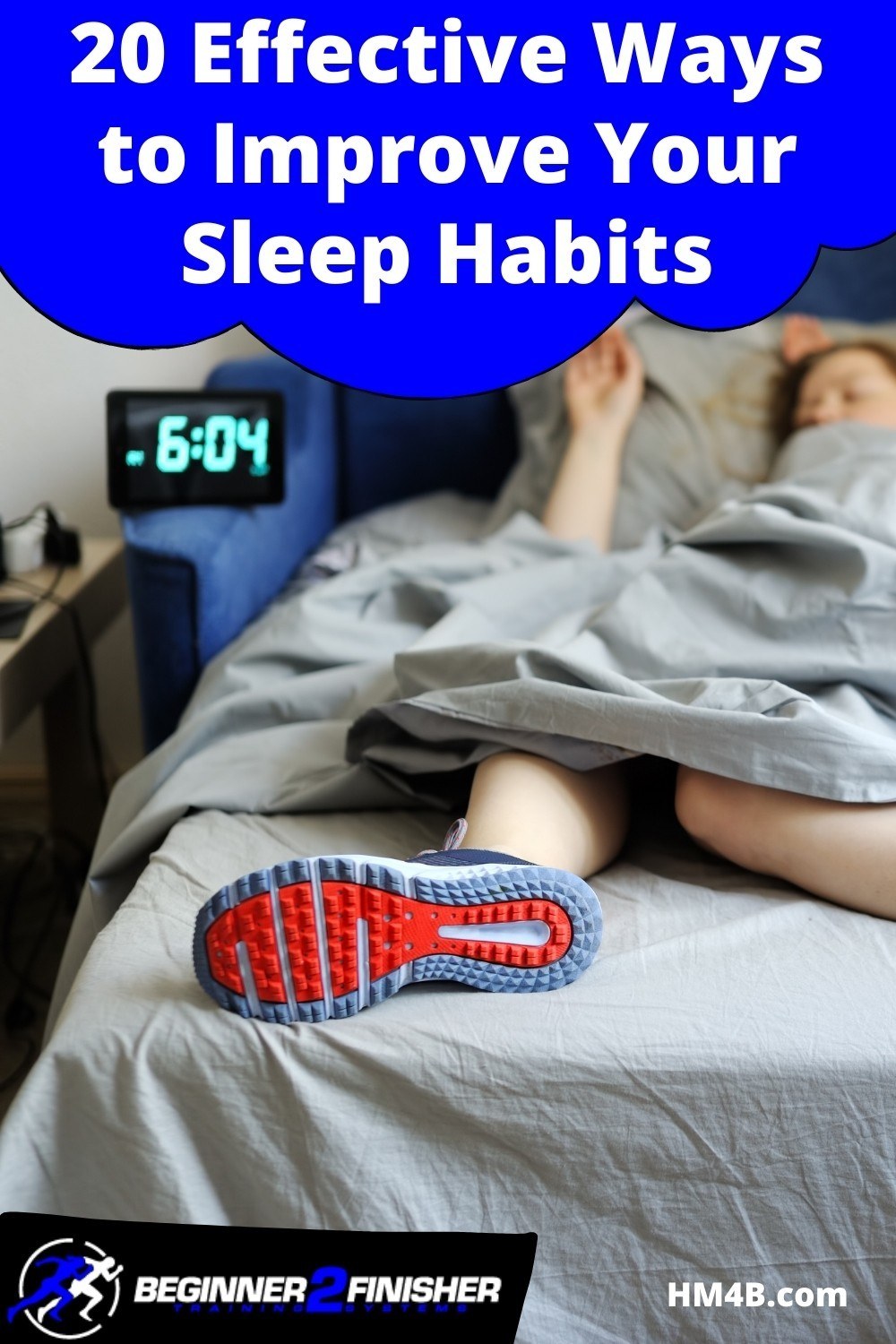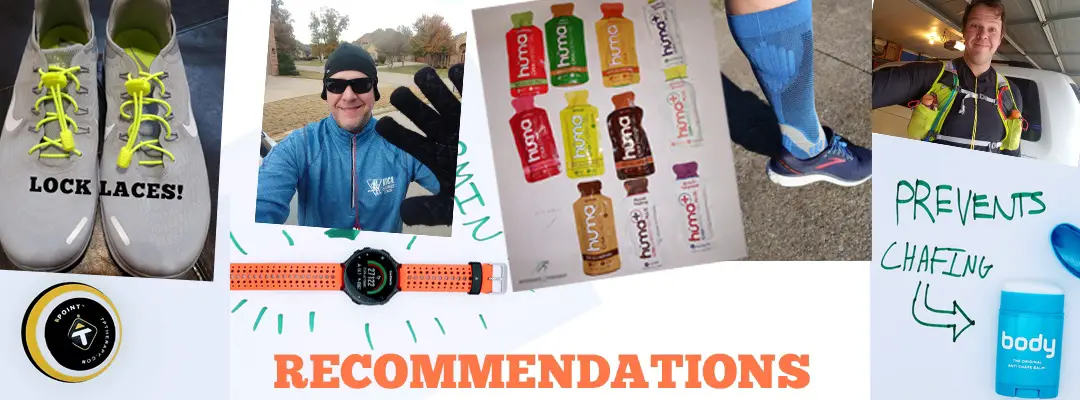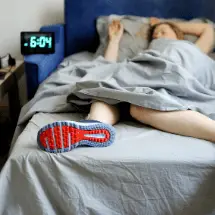A good night’s sleep has tons of advantages, especially for runners. If you want to stick to your training schedule and make sure you’re consistent, having excellent sleep hygiene is one of the best tools for success. This article will explore the importance of sleep for runners – 20 tips for better sleep!
How much sleep do runners need?
For every two hours, you are awake during the day, sleep experts recommend you should add one hour to your sleep at night. For runners, you’ll want to add an extra minute to your sleep per night for every mile you’ve run during a given week.
This amounts to getting, on average, 7 to 9 hours of sleep per night, with athletes operating best with 9 or 10 hours. But this will depend on their level of training.
Does running make it hard to sleep?
Having an elevated body temperature makes it more difficult to sleep, and running (and exercise in general) elevates your body temperature to the point where cooling it becomes difficult. This is especially true when you are not hydrating enough.
Your heart rate will also remain elevated long after you run, making it more difficult to sleep. These effects are lessened by carrying less stress and maximizing your fitness.
Does lack of sleep affect running?
If you didn’t get a good night’s sleep, nothing is stopping you from running the next day. The positive impacts of running far outweigh the fact that you might not be performing at your peak during your run. It may even help you sleep better the next night, as well as elevate your mood and energy levels for the day ahead.
However, if you are highly sleep-deprived, it can suppress your aerobic activity, slow your reaction time, and increase your blood sugar. Most importantly for runners, sleep deprivation will decrease the stores of glycogen in your muscles. Glycogen is the fuel your muscles use during running, and depleted stores of it will increase your risk of injury and burnout.

Affiliate Disclosure: This post includes affiliate links for which, LERK Publishing, LLC., may make a small commission at no extra cost to you should you make a purchase.
20 ways runners can get better sleep
There are many things runners can do to improve both their ability to fall asleep and their sleep quality. Here is a list of 20 things that will help you get a better night’s sleep so you’re at your best for the next day’s run.
1) Turn down the lights
Light doesn’t just help us see, it gives us energy. Sleeping with the lights on or ambient light that’s not directly in your room makes it more difficult for your brain to transition to deep sleep. Make sure all the lights are off and your room is as dark as possible.
2) Use a white or pink noise app
White noise consists of sounds from multiple frequencies playing at the same time. This is good if you want to mask other sounds, such as those coming from a city or loud neighborhood.
However, many people find that pink noise, which includes things like steady rain and rustling leaves, is much more pleasant. Sleep scientists think pink noise reduces brain activity by a significant margin, improving your overall sleep quality.
3) Avoid alcohol
A nightcap does not help you get a better night’s sleep. Although it might help people fall asleep faster, most findings show that it reduces the most important sleep component: REM sleep.
For a deeper dive on alcohol and how it affects runners check out: Alcohol – The good, the bad, and the ugly.
4) Reserve your bed for sleep
Sleep experts tell us we should only use our beds for sleep (or sex). Using your smartphone in bed or watching late-night tv can suppress our melatonin production and makes it hard to wind down. And if you’re going to read before bed, consider doing it in another room, so you only associate your bed with sleeping.
5) Minimize screen time
Using a screen, such as cell phones, tablets, or TVs, before you fall asleep might be a good way to wind down, but it’s not going to help you fall asleep. These devices contain a lot of blue light, which decreases our feelings of sleepiness and reduces the amount of time we spend in REM sleep. This will make your sleep far less rejuvenating.
6) Sleep at the same time every night
Getting up in the morning and going to bed at the same time every night reinforces our body’s circadian rhythm and helps us get into a healthy sleep schedule. Not only will this ensure you are rested for your next day’s run, but it also decreases the risk of a variety of diseases.
7) Physically stop working
It’s hard to fall asleep if you’re lying awake, anxious about your career. But that doesn’t mean you should get up and work. Not only will this increase your anxiety and stress levels, making it harder to fall asleep, but you’ll be far less productive the next day.
8) Mentally tell yourself it’s ok to stop working
Your body might leave the office, but often your brain is always on the clock. But you need time to decompress, especially if you’re going to get a good night’s rest and achieve your running goals the next day.
Give yourself permission to stop working for the day and channel your energy elsewhere. Meditate, paint, listen to some music, play a game with your kid, or create a to-do list for tomorrow to get all those thoughts about work off your mind.
9) Use a humidifier
Humidifiers add moisture to your bedroom, breaking up the phlegm in your chest and nose. This can reduce snoring and make you more comfortable while you sleep.
10) Exercise/run
While running and exercising right before you go to sleep is more likely to keep you up than put you to sleep, adding exercise to your day is guaranteed to increase your sleep quality and help you easily sleep through the night. The downside is it can take up to 4 months for you to notice the change.
11) Use blackout curtains
As we saw above, too much light can hurt your sleep, and blackout curtains are an effective way of keeping all kinds of light out of your bedroom while you fall asleep. This is especially useful if you live in a city where a lot of unnatural light pours through your windows, even in the middle of the night.
12) Soundproof your room
If you live with unruly roommates (or kids), or even if you live in a noisy neighborhood, soundproofing is an effective way of getting some peaceful shut-eye.
There are many ways you can do this, from ensuring your window has a better seal with weatherstrip tape, buying soundproof curtains or soundproof inserts that cover your windows or doors. A quiet room is one way to ensure a good night’s rest.
Related: Beginner’s Guide To Teenage Running
13) Use a comfortable pillow
It’s not just a comfy mattress that helps you sleep; finding the right pillow will have an impact too. Luckily pillows come in so many varieties these days, with different fills, thicknesses, and temperature regulations. You’ll have no trouble finding the right one, whether you are a side or a belly sleeper.
I have used this pillow for over 7 years and it’s my favorite pillow. I continually found my wife trying to steal this pillow so we finally ordered her one as well. Yes, it is an expensive pillow, but It is like no other. I tried 9 other pillows until I found this one. And if you don’t link it, simply return it, no questions asked:
Check Price on Amazon (Amazon Link)
14) Ensure your bed is the right one for you.
What makes for a comfortable mattress is pretty subjective depending on the kind of sleep surface you prefer, but most sleep experts agree that sleeping on an old bed will decrease your sleep quality.
This will be especially important if you are a runner or athlete. You’ll want a comfortable place to rest those aching muscles and recover for your next day of training.
15) Use earplugs
Soundproofing your ears is a cheaper solution to noise than soundproofing your entire bedroom. If you’re a light sleeper, there’s nothing worse than living in a noisy area. Earplugs that effectively block out sound can help you get the quality sleep you need, and they are generally safe to keep in all night.
16) Don’t drink caffeine before bed.
It should come as no surprise that caffeine is a stimulant. Drinking a coffee or a tea right before bedtime is a recipe for tossing and turning. Ensure you’re staying away from consuming anything with caffeine in it between 4 or 6 hours before bedtime, or it will seriously mess with your sleep cycle.
Related: Does caffeine boost running performance? How much caffeine should I consume before a run?
17) Don’t talk about stressful issues before bed
Ideally, it would be best if you were trying to relax and calm down right before bedtime. As we saw, experts recommend not working or exercising straight before you go to sleep as the elevated anxiety and heartrates make it difficult for our body to relax.
The same goes for stressful discussions. If you’ve got a difficult conversation to have with your partner, save it for the morning. A good night’s sleep will put you both in a better mood to tackle your issues, and you won’t lose sleep over it.
18) Listen to relaxing music or turn on a scented candle
Calming music and relaxing smells such as lavender can soothe you into a deep sleep. Children aren’t the only ones who sleep better after a lullaby, adults who listen to music to help them chill before bed have better sleep efficiency and less waking time during the night.
Make sure you remember to blow out that candle before you shut your eyes.
19) Have sex
There’s plenty of research to confirm what we always knew, sex right before sleep is a guaranteed way to fall fast asleep. And that doesn’t just go for partnered sex; solo sex releases all the same hormones that facilitate sleep and promote relaxation.
20) Make a sleep ritual routine and stick to it
A ritual is a series of acts repeated regularly in a precise way, and one of the most effective ways to consistently get good sleep is to create a sleep ritual.
You’ll want to pick a specific time to be in bed with the lights out and stick to it. Then, work your way backward and determine what activities will help you relax and wind down for bed. This can including taking a warm bath, journaling, making a to-do list for the following day, meditating, or connecting with your loved ones.
The key is commitment. The longer you stick with it, the more likely you’ll turn it into a lasting habit.
| Help support me and subscribe to my YouTube channel. YouTube video - 30 ways to make your runs less painful! Coach Scott's Credentials:
|
To sign up for a FREE half marathon training schedule, log sheet, and pace predictor CLICK HERE.

Recommended gear for runners
Connect with me:
| facebook.com/BeginnerToFinisher/ |
References
https://runwildretreats.com/more-sleep-runners-need/
https://www.healthline.com/health/sleeping-with-the-lights-on
https://www.sleepfoundation.org/bedroom-environment/white-noise
https://www.webmd.com/sleep-disorders/news/20130118/alcohol-sleep
https://www.sleepfoundation.org/sleep-hygiene/healthy-sleep-tips
https://www.sleepfoundation.org/how-sleep-works/how-electronics-affect-sleep
https://blog.trello.com/stop-thinking-about-work
https://www.civilized.life/articles/blackout-curtains-for-better-sleep/
https://www.sleepfoundation.org/best-pillows
https://www.healthline.com/health/healthy-sleep/does-a-good-mattress-improve-sleep#whats-good
https://www.healthline.com/health/sleeping-with-earplugs#side-effects
https://www.sleepfoundation.org/bedroom-environment/music-and-sleep
https://www.healthgrades.com/right-care/sexual-health/how-sex-can-help-improve-your-sleep



17 thoughts on “Sleep Hygiene For Runners: 20 Effective Ways to Improve Your Sleep”